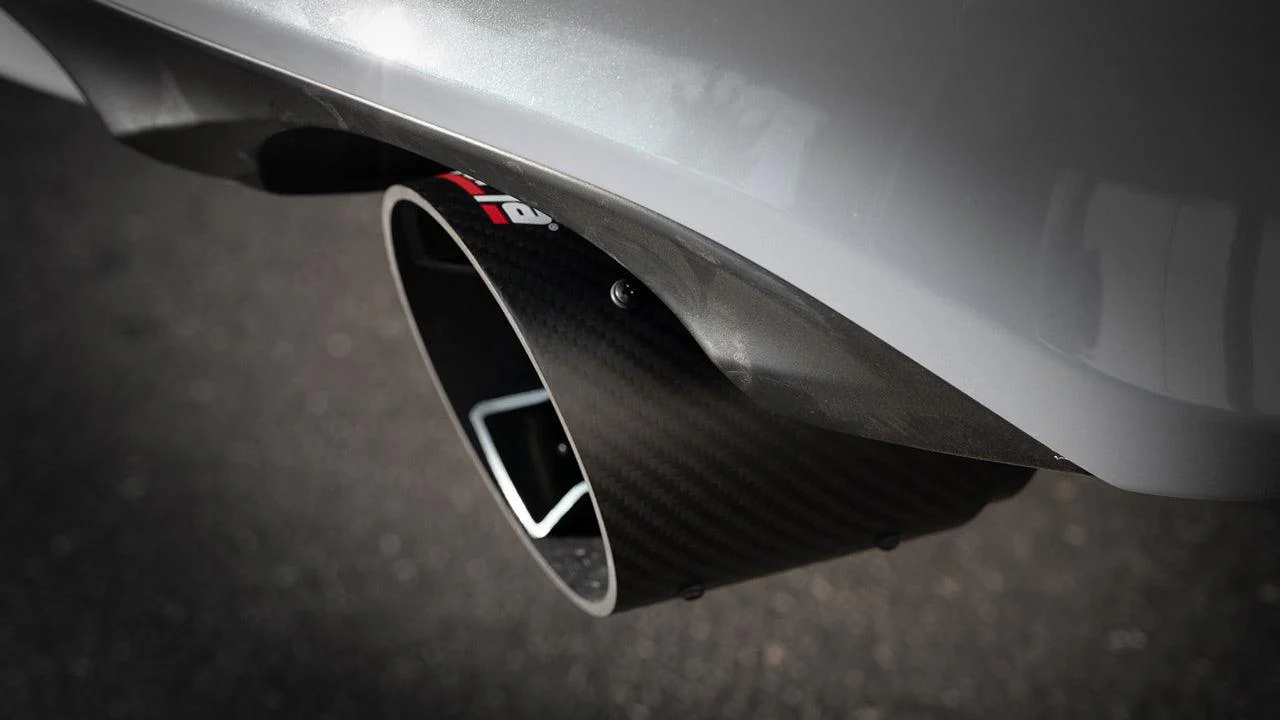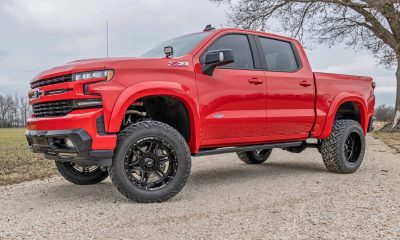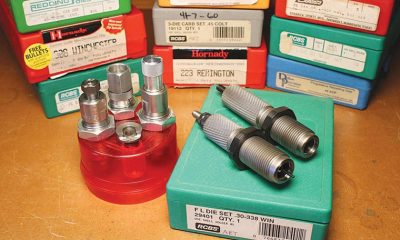Automotive
Benefits of Transmission Coolers and Choosing the Right Cooler for Your Vehicle
Believe it or not, there are more Aussies driving automatic transmissions now than manuals. The era of dancing through the gears every few meters in urban traffic, and literally standing on the accelerator for hours on the highway has come to an end, as less than 3% of all new vehicles now sold in Australia, including off-road and utility vehicles, have manual transmissions.
For off-roading and towing, an automatic transmission eliminates the hassle of tricky clutch slippage, stalls, and wheel spin. And combined with features like traction and stability control, modern 8- and 10-speed automatic ute transmissions make unconventional driving conditions safer and more predictable.
Automatic transmissions are also tougher now than they’ve ever been, but they’re not immune to heat damage. At 120°C, automatic transmission fluid (ATF) begins to break down and lose its viscosity, and the damage that’s done to transmission seals and clutch plates once the fluid starts “cooking” is permanent.
In short, if you want to save your transmission, you want to keep your ATF as cool as possible. That means looking at the benefits auxiliary ATF coolers have to offer.
Keeping Your Transmission Cool
There’s no mistake about it: if your truck or ute has an automatic transmission and you do a lot of hard driving in hot weather, then reeling in your transmission temperatures has to be a priority. Severe-duty ATF, and regular filter and fluid changes can help, but what you really need to do is start looking at high-quality auxiliary transmission coolers for the permanent fix. A well-designed, properly positioned transmission cooler can lower your ATF temperature by as much as 33°C. That’s a significant decrease; and with ATF temperatures capable of stretching dangerously past 140°C under extreme conditions, it’s a temperature reduction that’ll prevent your transmission from failing completely.
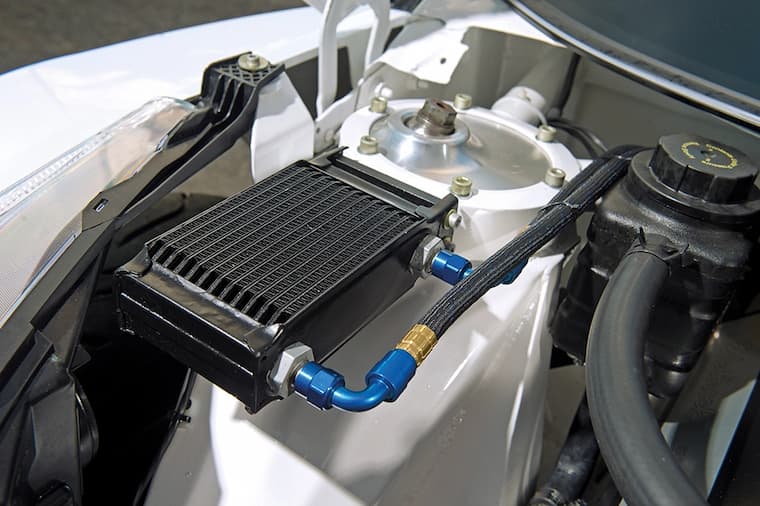
Auxiliary transmission coolers utilize airflow across their cooling surfaces to dissipate the heat that’s absorbed by the ATF as it circulates through the transmission, and a typical cooler kit going to include:
· One or two, 23-core ATF coolers;
· 400psi ATF hose; and,
· Vehicle-specific mounting hardware.
Although transmission coolers may sound like exotic bits of tuning kit, they’re essential components for safeguarding the second costliest assembly in your vehicle. That’s why most automatic vehicles have transmission coolers built into their radiators. They’re not as effective as externally mounted coolers though, which offer immediate benefits in:
· Better acceleration and engine performance;
· Lower engine coolant and oil temperatures; and,
· Improved fuel economy.
You’re able to get more out of your entire drivetrain by installing an external transmission cooler. And in a tough driving environment like Australia, you’ll be amazed by how much keeping your transmission cool is going to improve your vehicle’s reliability.
Coolers Made for Australia
Even for the toughest automatic transmission coolers, Australia offers a slew of environmental extremes that can’t be found anywhere else in the world. They have to be durable enough to take on the full range of activities that make driving in Australia so unique, such as:
· Towing trailers and caravans long distances in high temperatures;
· Frequent trips off road or across rough terrain; and,
· Constant stops and starts with heavy loads.
Swapping on bigger tyres is a big deal down under, but even the switch to a larger tyre can send automatic transmission temperatures skyrocketing in Australia’s heat. That’s why you want a durable, Australian-made transmission oil cooler that’s made to get through its extreme brand of heat.
Know Your Cooler Types
There are 3 main types of transmission coolers for sale:
· Tube and fin coolers. These low-cost, light-duty coolers use a coiled tube surrounded by aluminium fins to dissipate the ATF’s heat as it circulates through the cooler’s core.
· Plate and fin coolers. These medium-duty coolers have greater surface cooling area than tube and fin types, and use internal turbulators to agitate the ATF as it’s pushed through large horizontal aluminium plates.
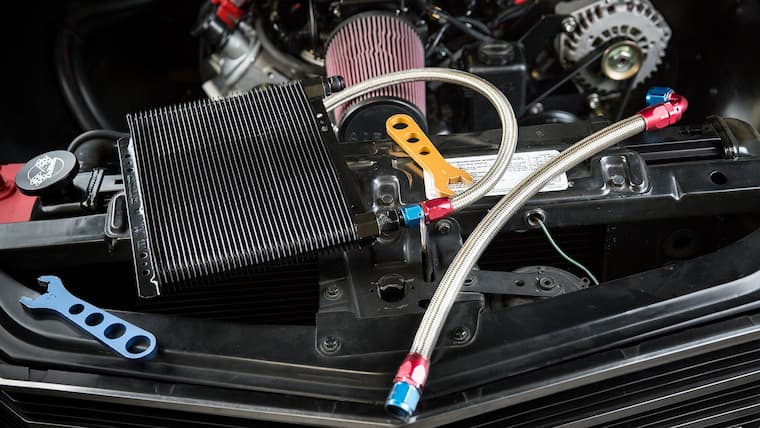
· Stacked plate coolers. These competition-level coolers are similar to plate and fin types, but feature even larger aluminium plates that allow for even greater cooling agitation, use AN-type pressure fittings, and are ideal for ram-air ducted systems.
While each type has its advantages, plate and fin coolers offer the best combination of superior cooling and overall reliability, with the added benefits of:
· The best price-to-value compromise;
· Less weight with equally durable construction; and,
· The widest variety of compact sizes.
The additional fin material used on a plate and fin transmission cooler allows for the greatest amount of airflow without restricting the flow of air to the rest of the engine compartment. They’re the perfect compromise on auxiliary coolers, but choosing the right-sized one is where all the difference is made.
Choosing the Right-Sized Cooler
When you’re checking out cooler hardware and equipment, you never want to look beyond the transmission cooler for sale that’s designed and bracketed for your vehicle. There’s no such thing as a cooler that’s too big, but a cooler that’s matched to your vehicle is going to be based on its specific GVWR (gross vehicle weight rating) and towing capacity, and with either single- or dual-cored cooling units.
Using a cooler that’s designed for a 2.4L 4-cylinder Toyota Hilux on a model that is equipped with a 4.0L V6 can be just as detrimental to your transmission as not using a cooler at all, so you want to be sure that you’re using the right one. Because next to deciding where you’ll mount it, buying the right-sized cooler is the most important decision you’ll make.
Cooler Mounting Precautions
With their vehicle-specific mounting hardware, high-quality transmission cooler kits typically mounted coolers ahead of the radiator. This ensures they’re receiving undisturbed airflow, without taking damage from rocks or other road debris that’s being kicked up on the underside.
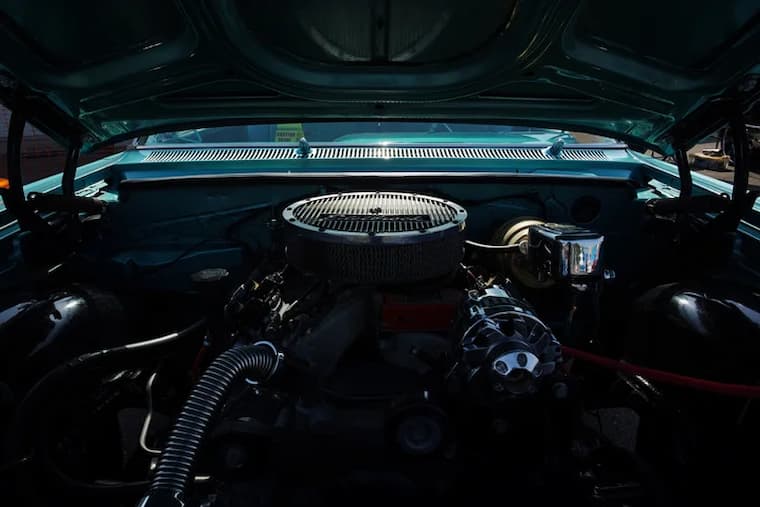
And mounting a cooler is a straightforward process with vehicle-specific instructions too, but you always want to be careful of the following:
· That the cooler’s fins run parallel to the radiator’s fins for maximum cooling;
· That the cooler’s hoses aren’t kinked or restricted by severe bends or ill-fitting connections; and,
· That no part of the cooler or its hoses come in contact with any other hot or moving parts.
Assuming your vehicle came with a transmission cooler built into the radiator, your kit’s instructions will also likely detail how to plumb your auxiliary cooler to operate in tandem with the built-in unit. It’ll effectively double your automatic transmission’s protection, without adding any additional cost to your kit.
The Final Word
Today’s automatic transmissions are marvels of automotive engineering. From daily commutes to weekend competition, they’re designed to take just about anything that’s thrown at them, but allowing one to regularly overheat will shorten its lifespan exponentially.
High-quality auxiliary transmission coolers are crucial components for preventing ATF temperatures from reaching levels that would be destructive to your transmission. And combined with a proactive schedule of filter and fluid changes, you can be sure that your automatic transmission is going to keep performing its best for as long as you own your vehicle.
Writing for the blog since 2012, Chris simply loves the idea of providing people with useful info on business, technology, vehicles, industry, sports and travel – all subjects of his interest. Even though he sounds like quite the butch, he’d watch a chick flick occasionally if it makes the wife happy, and he’s a fan of skincare routines though you’d never have him admit that unless you compliment his impeccable skin complexion.



